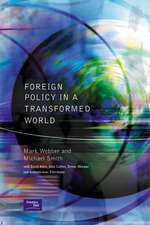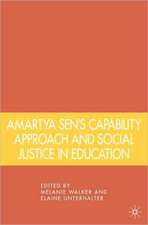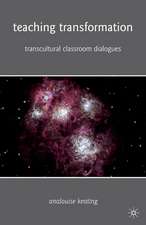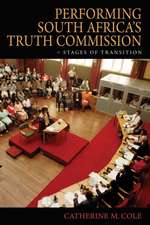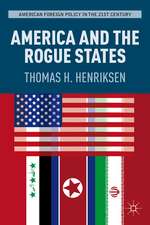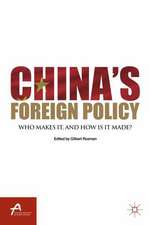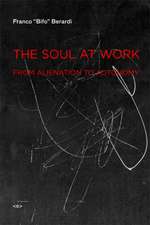American Power after the Berlin Wall
Autor T. Henriksenen Limba Engleză Paperback – 10 noi 2009
| Toate formatele și edițiile | Preț | Express |
|---|---|---|
| Paperback (1) | 386.81 lei 6-8 săpt. | |
| Palgrave Macmillan US – 10 noi 2009 | 386.81 lei 6-8 săpt. | |
| Hardback (1) | 393.90 lei 6-8 săpt. | |
| Palgrave Macmillan US – 8 noi 2007 | 393.90 lei 6-8 săpt. |
Preț: 386.81 lei
Nou
Puncte Express: 580
Preț estimativ în valută:
74.02€ • 77.47$ • 61.60£
74.02€ • 77.47$ • 61.60£
Carte tipărită la comandă
Livrare economică 31 martie-14 aprilie
Preluare comenzi: 021 569.72.76
Specificații
ISBN-13: 9780230620216
ISBN-10: 0230620213
Pagini: 250
Ilustrații: VII, 250 p.
Dimensiuni: 152 x 229 x 15 mm
Greutate: 0.39 kg
Ediția:2007
Editura: Palgrave Macmillan US
Colecția Palgrave Macmillan
Locul publicării:New York, United States
ISBN-10: 0230620213
Pagini: 250
Ilustrații: VII, 250 p.
Dimensiuni: 152 x 229 x 15 mm
Greutate: 0.39 kg
Ediția:2007
Editura: Palgrave Macmillan US
Colecția Palgrave Macmillan
Locul publicării:New York, United States
Cuprins
End of the Berlin Wall and the American Colossus Intervention and Democracy in Central America The Persian Gulf War Globalization, Somalia, Rwanda and Haiti Bosnia: War and Intervention Kosovo: Round Two in the Balkans Containing North Korea, Iraq, and Terrorism Attacking Afghanistan Iraq: War and Occupation Stability and Security Through Democracy?
Recenzii
'This informative review of post-Cold War foreign policies provides and stimulates thoughtful reflections on strategy and tactics for the future. Well written and rewarding'- George P. Shultz
'Thomas Henriksen has written a remarkably comprehensive detailed and critical survey of America's interventions across the globe since the fall of the Berlin Wall. This is an invaluable addition to the literature on American foreign policy and international relations more generally.'- Timothy Garton Ash, Professor of European Studies, University of Oxford, Senior Fellow of the Hoover Institution, Stanford University
'Thomas Henriksen has written a cogent account of the logic of American power after the Cold War, showing that there was greater continuity than many would suspect between policies in the 1990s and in the Bush administration. It raises important questions about the uses of American power in the very different world we face today.- Francis Fukuyama author of America at the Crossroads
'Such is our preoccupation with Iraq, that we are tempted to forget just how many times the United States has intervened in the affairs of far-away countries since the end of the Cold War. In this ambitious narrative of American foreign policy since 1989, Thomas Henriksen traces the transformation of both the theory and the practice of 'regime change'. Unfashionably, but compellingly, he shows that the successes outweigh the failures - and that the worst failuresmay still be those failed states, like Rwanda, which the United States elected not to intervene in. This is the best kind of contemporary history - a book that reads like a publication from the future.'- Niall Ferguson, Laurence A. Tisch Professor of History, Harvard University, and author of Colossus: The Rise and Fall of the American Empire
'A fascinating and revealing account of American post-Cold War interventionist policies. Henriksen's work provides a solid foundation upon which a highly effective new grand strategy for dealing with the elusive threat of terrorism can be constructed.'- David M. Abshire, former NATO Ambassador and President, Center for the Study of the Presidency
'Thomas Henriksen has written a remarkably comprehensive detailed and critical survey of America's interventions across the globe since the fall of the Berlin Wall. This is an invaluable addition to the literature on American foreign policy and international relations more generally.'- Timothy Garton Ash, Professor of European Studies, University of Oxford, Senior Fellow of the Hoover Institution, Stanford University
'Thomas Henriksen has written a cogent account of the logic of American power after the Cold War, showing that there was greater continuity than many would suspect between policies in the 1990s and in the Bush administration. It raises important questions about the uses of American power in the very different world we face today.- Francis Fukuyama author of America at the Crossroads
'Such is our preoccupation with Iraq, that we are tempted to forget just how many times the United States has intervened in the affairs of far-away countries since the end of the Cold War. In this ambitious narrative of American foreign policy since 1989, Thomas Henriksen traces the transformation of both the theory and the practice of 'regime change'. Unfashionably, but compellingly, he shows that the successes outweigh the failures - and that the worst failuresmay still be those failed states, like Rwanda, which the United States elected not to intervene in. This is the best kind of contemporary history - a book that reads like a publication from the future.'- Niall Ferguson, Laurence A. Tisch Professor of History, Harvard University, and author of Colossus: The Rise and Fall of the American Empire
'A fascinating and revealing account of American post-Cold War interventionist policies. Henriksen's work provides a solid foundation upon which a highly effective new grand strategy for dealing with the elusive threat of terrorism can be constructed.'- David M. Abshire, former NATO Ambassador and President, Center for the Study of the Presidency
Notă biografică
THOMAS HENRIKSEN is a Senior Fellow at the Hoover Institution, Stanford University, USA.

